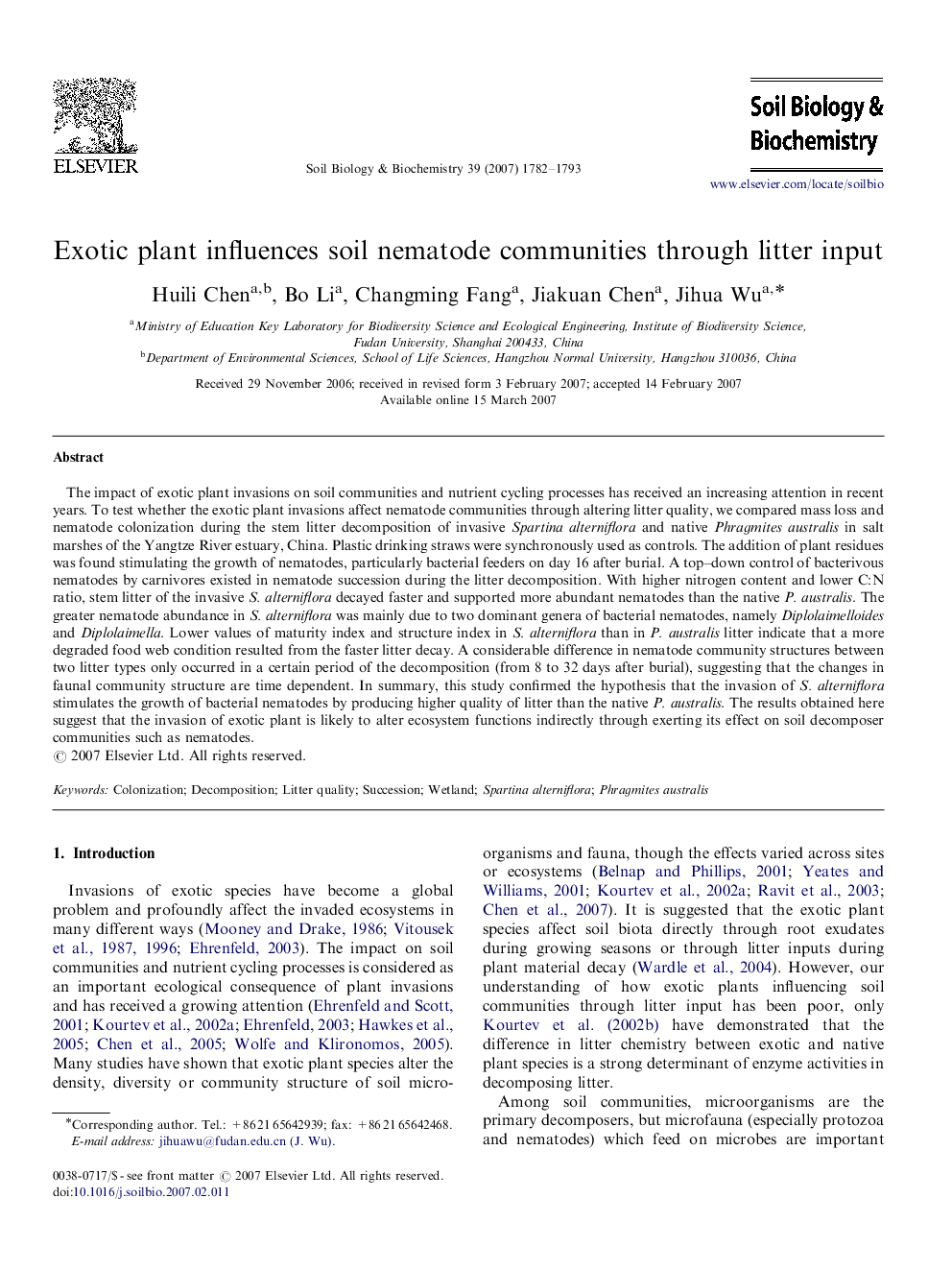| Article ID | Journal | Published Year | Pages | File Type |
|---|---|---|---|---|
| 2026244 | Soil Biology and Biochemistry | 2007 | 12 Pages |
The impact of exotic plant invasions on soil communities and nutrient cycling processes has received an increasing attention in recent years. To test whether the exotic plant invasions affect nematode communities through altering litter quality, we compared mass loss and nematode colonization during the stem litter decomposition of invasive Spartina alterniflora and native Phragmites australis in salt marshes of the Yangtze River estuary, China. Plastic drinking straws were synchronously used as controls. The addition of plant residues was found stimulating the growth of nematodes, particularly bacterial feeders on day 16 after burial. A top–down control of bacterivous nematodes by carnivores existed in nematode succession during the litter decomposition. With higher nitrogen content and lower C:N ratio, stem litter of the invasive S. alterniflora decayed faster and supported more abundant nematodes than the native P. australis. The greater nematode abundance in S. alterniflora was mainly due to two dominant genera of bacterial nematodes, namely Diplolaimelloides and Diplolaimella. Lower values of maturity index and structure index in S. alterniflora than in P. australis litter indicate that a more degraded food web condition resulted from the faster litter decay. A considerable difference in nematode community structures between two litter types only occurred in a certain period of the decomposition (from 8 to 32 days after burial), suggesting that the changes in faunal community structure are time dependent. In summary, this study confirmed the hypothesis that the invasion of S. alterniflora stimulates the growth of bacterial nematodes by producing higher quality of litter than the native P. australis. The results obtained here suggest that the invasion of exotic plant is likely to alter ecosystem functions indirectly through exerting its effect on soil decomposer communities such as nematodes.
